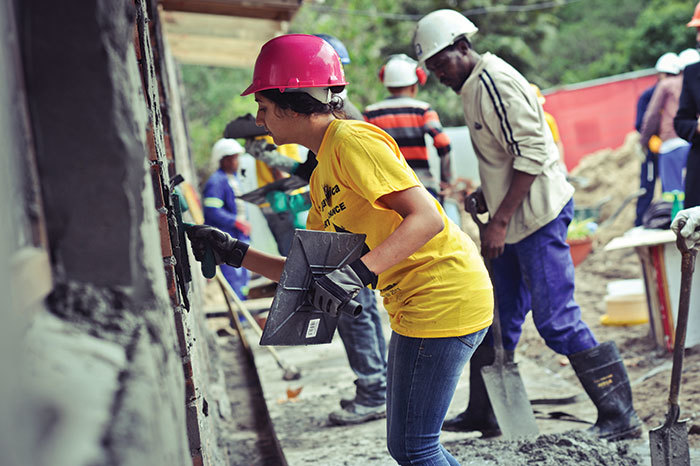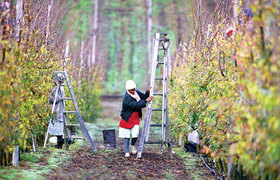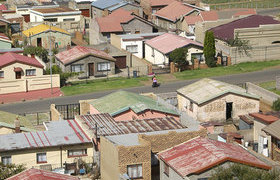Early start is a head start
19 September 2014
It's a bold vision – 30 centres of excellence for early childhood development in five years: a proposal to herald a lasting change in education, starting with the province's preschoolers.
Enabling and supporting this vision became the goal of the Faculty of Commerce's Transformation Committee in 2012 when they adopted the Southern Africa Sustainable Development Initiative's (SASDI) Starting Chance Campaign as their social responsiveness focus for the next five years.
It's well-known that the first 1 000 days of a child's life are paramount to their physical, mental and emotional development. In the Western Cape, however, 78% of the children under the age of four don't have access to pre-school education. The province has 1 025 registered preschools that provide for 80 000 children and over 2 000 unregistered preschools catering for 30 000 children. In all, some 390 000 children don't have access to vital preschooling. This is where the SASDI Starting Chance Campaign aims to make a difference.
"Children need cognitive stimulation from a very young age if they are to become university graduates with good employment prospects," says Stuart Hendry, director of the faculty's Development Unit for New Enterprise (DUNE) and course convenor and lecturer on the Genesis Project. He is also the main fundraiser for the Starting Chance Campaign and a SASDI board member.
SASDI's integrated approach, developing physical infrastructure while at the same time upskilling and empowering teachers and principals who will operate the centres, will enable registration under the new regulatory requirements.
Two revenue streams – government support grants as well as fees from parents (the average fee per child per month in a township early childhood development centre is R150) – will not only radically improve the quality of early childhood education, but also make it possible for centres to run as sustainable, community-based social enterprises.
In 2010 and 2011, the Faculty of Commerce collaborated with the SASDI Foundation, the City of Cape Town, and local and international donors to deliver the Mfuleni Centre for Early Childhood Development. In 2012, volunteers from the faculty helped to build a similar centre in Philippi.
In 2013 and 2014, the faculty's information technology unit was instrumental in delivering a world-class computer training centre in Mfuleni. This year the team at DUNE worked with the SASDI Foundation to unlock a pledge for R8.5million from Tower Property Fund. This will be used to build an early childhood development hub plus four ECD 'Shack to Chic' upgrades in New Crossroads.
Reflecting the SASDI model, each hub becomes a node in a network of ECD community excellence and by doing so can support up to four satellite centres, which are normally shack-based, says Hendry.
"What we have begun to see is that after a decent upgrade and some intensive training and development, even the shack-based centres become support nodes in their ECD networks – this has a powerful multiplier effect, with positive consequences for potentially thousands of early learners."
To enhance the greater initiative and with a view to influencing better ECD policy development at both local and provincial levels of government, UCT is also developing an innovative, longitudinal research study that will be the first of its kind in South Africa and will aim to understand how better policy initiatives can drive 'pro-education' values among the parents of young learners in low-income communities.
Story by Helen Swingler. Photo by Je'nine May.
 This work is licensed under a Creative Commons Attribution-NoDerivatives 4.0 International License.
This work is licensed under a Creative Commons Attribution-NoDerivatives 4.0 International License.
Please view the republishing articles page for more information.










